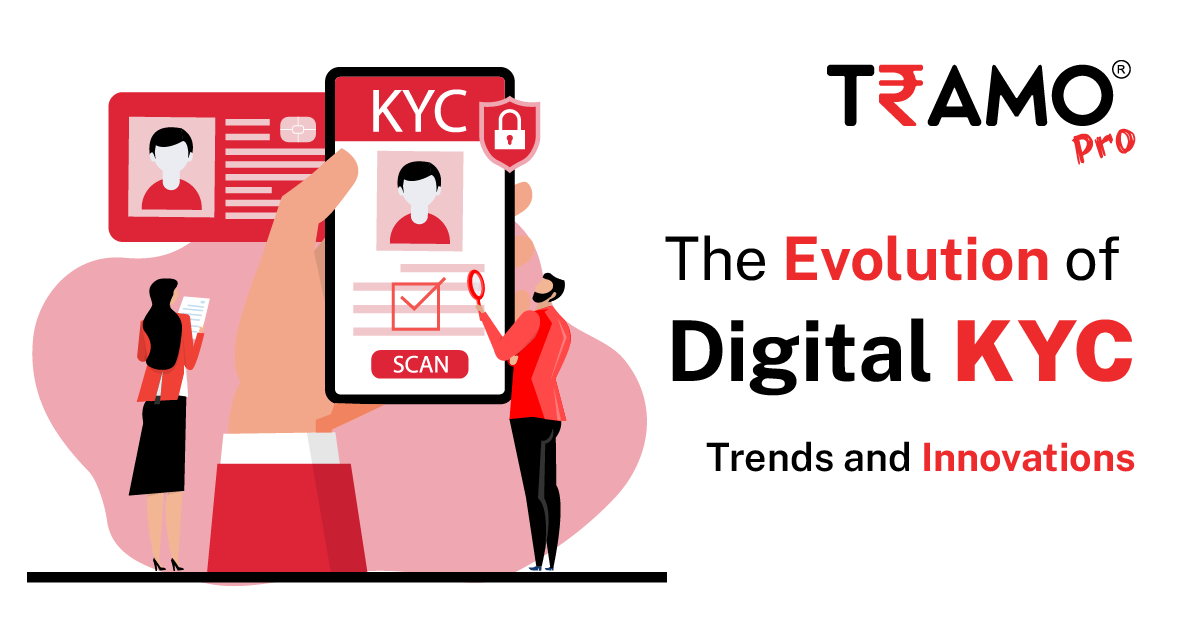
Introduction
In the fast-paced digital age, where technology continues to change the landscape of various industries, the evolution of Know Your Customer (KYC) processes stands out as an important aspect of modern business operations. KYC is originally a compliance requirement for financial institutions and has undergone a remarkable transformation from manual, paper-based procedures to sophisticated and seamless digital solutions. This evolution has not only streamlined customer onboarding but has also enhanced security measures and improved overall user experience.
History of KYC
Historically, KYC processes involved a complex process of paperwork where customers were asked to submit numerous documents such as passports, utility bills, and identification cards to prove their identity. This manual, time-consuming process often led to delays in customer onboarding, increased operational costs, and had higher chances of errors.
Traditional Know Your Customer (KYC) procedures faced significant danger of document forgery. The reliance on paper documentation created a vulnerable environment where individuals with bad intentions could exploit the system by forging or manipulating these documents.
Businesses also found it difficult to quickly update their procedures and keep up with the ever-changing regulations. Organizations were at risk of non-compliance due to the static nature of manual, paper-based systems, which made it difficult for them to adjust quickly to new compliance standards while being at a risk of serious repercussions if it didn’t comply with regulatory frameworks, such as financial penalties, legal issues, and reputational harm.
Innovations in KYC
Innovation in the methods of KYC was the need of the hour and the financial services industry led the first steps toward digitizing KYC procedures in the early 2000s. Financial institutions began exploring electronic verification methods and online platforms to streamline customer onboarding and compliance procedures.
These early digitalization efforts were driven by a variety of factors. Institutions aimed to reduce the time and resources needed for traditional, paper-based KYC’s manual verification procedures. Furthermore, there was an increasing recognition of the need for stronger compliance procedures in reaction to evolving regulatory requirements.
The use of digital identity verification increased significantly in the years that followed the initial moves toward digitizing KYC procedures. A number of significant factors carried this momentum, which led to a larger and advanced adoption of digital KYC procedures.
In the Mid-2010s, biometric technology advancements improved the accuracy and security of digital KYC. In comparison to traditional methods, biometrics, including fingerprint recognition, facial scanning, and voice authentication, presented a more robust and dependable approach to verify the identities of individuals. The rapid growth of technological innovations strengthened the dependability of digital identity verification. With the digital revolution helping in the increased smartphone penetration in India played a pivotal role in the widespread adoption of Digital Know Your Customer processes. We witnessed a transformative shift in how identity verification was conducted in India.
The introduction of Aadhaar, a biometric identification system, provided a robust foundation for eKYC in India. Aadhaar enabled individuals to link their identity to unique biometric markers such as fingerprints and iris scans, establishing a secure and reliable means of identification. Government-led initiatives, such as the Digital India campaign, emphasized the importance of digitization across sectors. Policies and frameworks were put in place to support and regulate eKYC processes, ensuring their legality and alignment with security standards. Regulatory bodies in India recognized the benefits of eKYC in terms of efficiency, accuracy, and fraud prevention. They provided regulatory support and guidelines to facilitate the adoption of eKYC methods while ensuring compliance with security and privacy standards.
Trends in Digital KYC
As technology continues to advance, trends in Digital Know Your Customer (KYC) are shaping the landscape of identity verification processes. These trends show the continuous efforts to improve user experience, optimize operation and strengthen security. Here are some notable trends in Digital KYC:
- Biometric Authentication:
The use of biometric data, such as fingerprint recognition, facial scanning, and voice authentication, continues to gain prominence in Digital KYC. Biometrics offer a high level of accuracy and security, reducing the reliance on traditional methods like passwords and PINs.
- Multifactor Authentication (MFA):
Multifactor Authentication is increasingly being incorporated into Digital KYC to add an extra layer of security. Combining multiple authentication factors, such as something the user knows (password), something the user has (smartphone), and something the user is (biometrics), enhances overall identity verification robustness.
- Mobile-Centric Solutions:
With the universality of smartphones, there is a growing trend towards mobile-centric Digital KYC solutions. Mobile applications equipped with advanced camera capabilities allow users to capture and submit identity documents, facilitating remote onboarding and enhancing user convenience.
- Regulatory Technology (RegTech):
The integration of RegTech solutions is becoming more prevalent in Digital KYC. Automated tools and platforms assist organizations in staying compliant with evolving regulatory requirements. These solutions streamline compliance processes and help in adapting to changing standards more efficiently.
As the digital landscape continues to evolve, the future of Digital KYC will likely see further advancements in technology, increased collaboration between stakeholders, and a heightened focus on data security and privacy. The ongoing dialogue between technological innovation and regulatory compliance will play a pivotal role in shaping the future trajectory of KYC processes.
Join Our Mailing List
Once Weekly Webinar
Free Webinar Once Per Week
Our free webinar runs once per week and is available to anybody who wants to know more about getting started on the road to financial freedom.
